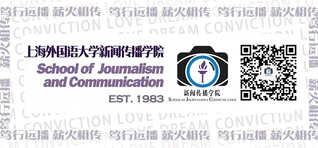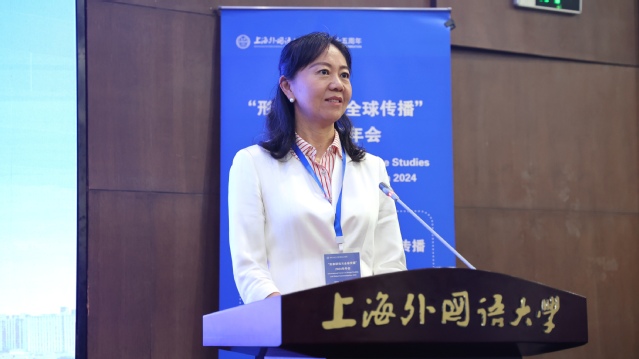
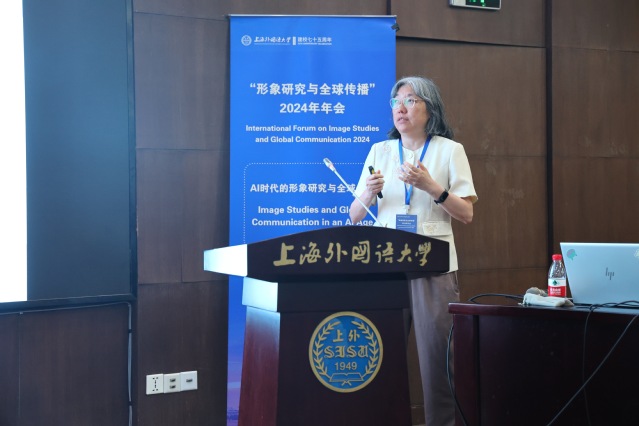
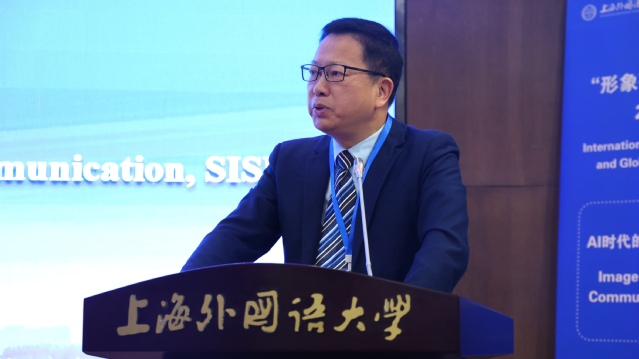
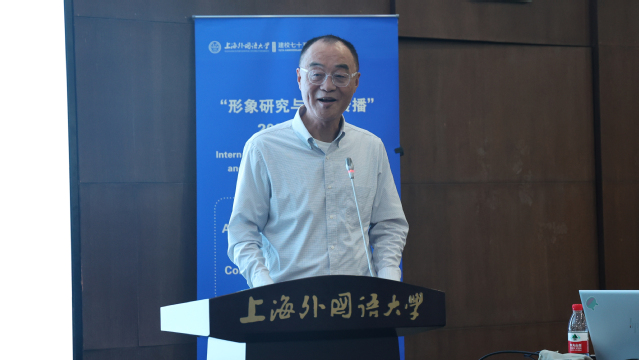
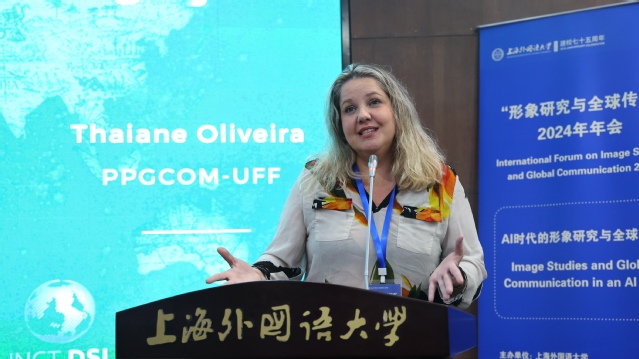
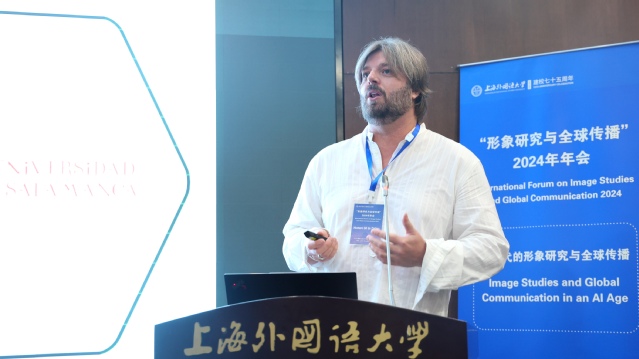
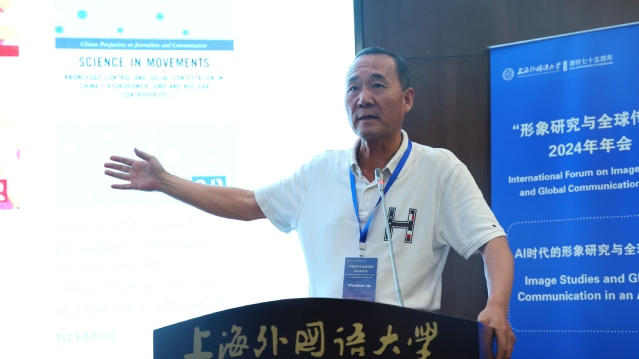
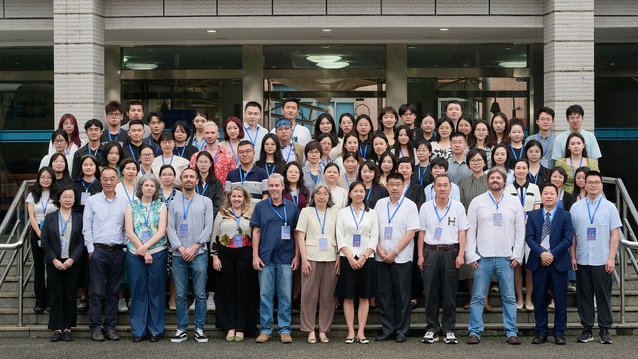
By Zhao Jiamin
Shanghai, June 29, 2024 – Shanghai International Studies University (SISU) recently held the International Symposium on Image Research and Global Communication in the AI Era, marking a key highlight of its 75th anniversary celebrations. The event, which took place at the university’s Hongkou campus, also featured the 2024 Annual Meeting of Image Research and Global Communication. It was organized by SISU’s School of Journalism and Communication, Research Center for the International Public Opinion of China, and the journal Online Media and Global Communication.
The symposium attracted over 60 scholars and experts from around the globe, including the United States, the United Kingdom, Hungary, Spain, and Brazil. SISU Party Secretary Yin Dongmei and Dean of the School of Journalism and Communication Prof. Guo Ke attended the conference. The event was chaired by Associate Dean of SJC Prof. Chen Peiqin.
In her opening remarks, Yin emphasized the growing importance of image research in the AI era. She highlighted the need for new theoretical frameworks and methodologies to address the challenges posed by AI-driven global communication, particularly in an era marked by globalization and rapid technological advancements.
Dean Guo Ke underscored the symposium’s significance in fostering academic collaboration on global communication, noting its potential to contribute to the development of innovative knowledge systems. “This event provides a unique opportunity to establish an academic community that explores the intersection of image research and global communication,” Guo said.
Six leading scholars from across the world delivered keynote addresses, exploring topics ranging from image research to academic publishing. Notably, Prof. Louisa Ha from Bowling Green State University in the U.S. shared findings from her study of pro-China YouTubers, noting that while these influencers helped reinforce pro-China sentiments among their followers, they had limited success in shifting anti-China views.
Prof. Guo Ke, also co-editor of Online Media and Global Communication, presented an analysis of 634 academic papers on China’s National Knowledge Infrastructure (CNKI) from 1992 to 2003. He discussed trends in global knowledge production and proposed areas for improvement in academic research, including the need for innovation in Chinese theories and a more inclusive academic ecosystem.
Other prominent researchers at the symposium included Prof. Ge Yan from Shanghai Jiao Tong University, Prof. Thaiane Oliveira from Brazil’s Fluminense Federal University, Prof. Homero Gil de Zúñiga from Spain’s University of Salamanca, and Prof. Jia Wenshan from Shandong University.
The symposium’s core theme, Image Research and Global Communication in the AI Era, was explored through five sub-forums, focusing on topics such as China’s national image, the role of AI in global media, international communication, and global discourse.
In his closing remarks, Dean Guo Ke stressed the interdisciplinary nature of image research, noting its connections to fields ranging from chemistry and physics to literature and communication studies. He also expressed optimism for continued international collaboration and multilingual exchange in the future.
The symposium successfully provided a platform for global dialogue, fostering deeper understanding and collaboration in the rapidly evolving field of image research and global communication in the age of artificial intelligence.

 |Hongkou Campus|550 Dalian Road (W), Shanghai 200083, China |Songjiang Campus|1550 Wenxiang Road, Shanghai 201620, China
|Hongkou Campus|550 Dalian Road (W), Shanghai 200083, China |Songjiang Campus|1550 Wenxiang Road, Shanghai 201620, China